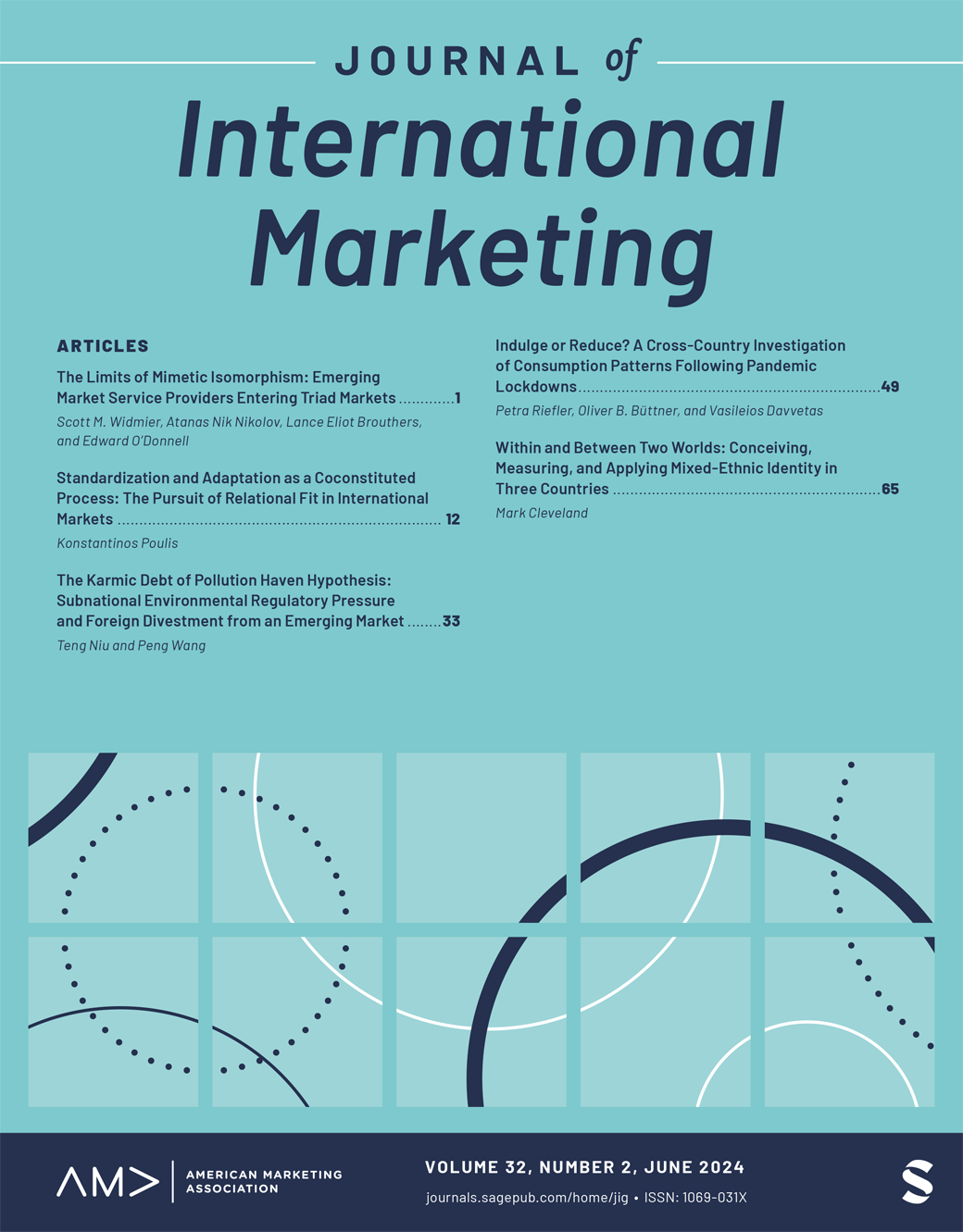快讯全球品牌是否应该参与品牌行动主义?
IF 4.2
2区 管理学
Q1 BUSINESS
引用次数: 0
摘要
品牌行动主义,即对当前有分歧的社会政治问题采取立场,已成为表达品牌价值和与公司客户群互动的一种新手段。然而,在全球范围内,企业对采取立场的后果缺乏确凿的指导。本研究提出了一个新颖的问题:全球品牌是否应该参与激进主义?五项研究利用不同的激进主义操作(如声明和行动),揭示了消费者对激进主义全球品牌的偏好。更重要的是,在模式变化理论的指导下,作者发现,无论消费者之前的态度如何,积极的品牌行动主义效应对于与负面品牌起源相关的全球品牌来说尤为强烈。然而,只有当消费者先前的态度价值观一致时,具有积极品牌起源关联的品牌才会从积极品牌行动主义中获益。作者还发现了自我品牌联系的中介效应,这种效应会对行为意向产生下游影响。综上所述,这项研究揭示了不同文化背景下消费者对品牌行动主义的新看法,阐明了消费者为何偏爱参与行动主义的全球品牌,并为全球品牌管理者提供了可操作的见解。本文章由计算机程序翻译,如有差异,请以英文原文为准。
EXPRESS: Should Global Brands Engage in Brand Activism?
Brand activism, taking a stance on current and divisive socio-political issues, has emerged as a novel means of expressing a brand’s values and engaging with the firm’s customer base. Yet, globally, companies lack conclusive guidance on the consequences of taking a stance. This research asks a novel question: should global brands engage in activism? Using varying activism manipulations (e.g., statements and actions), five studies reveal consumer preference for activist global brands. More importantly, guided by schema change theory, the authors find that the positive brand activism effect is particularly strong for global brands associated with negative brand origin irrespective of consumers’ prior attitude valence. However, brands with positive origin associations benefit from activism only when consumers’ prior attitude valence is in alignment. The authors also identify the mediating effects of self-brand connection, which has downstream consequences for behavioral intentions. Taken together, this work sheds new light on consumer perceptions of brand activism across cultures, elucidates why consumers prefer global brands that engage in activism and offers actionable insights for global brand managers.
求助全文
通过发布文献求助,成功后即可免费获取论文全文。
去求助
来源期刊

Journal of International Marketing
BUSINESS-
CiteScore
8.70
自引率
17.20%
发文量
28
期刊介绍:
As the globalization of markets continues at a rapid pace, business practitioners and educators alike face the challenge of staying current with the developments. Marketing managers require a source of new information and insights on international business events. International marketing educators require a forum for disseminating their thoughts and research findings. Journal of International Marketing(JIM) is an international, peer-reviewed journal dedicated to advancing international marketing practice, research, and theory. Contributions addressing any aspect of international marketing management are published each quarter.
 求助内容:
求助内容: 应助结果提醒方式:
应助结果提醒方式:


